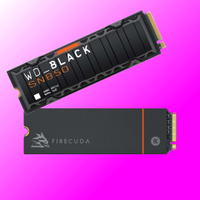Microsoft's recyclobot uses machine learning and computer vision to open and recycle 90% of hard drive components
Beats smashing them up with a big hammer, though it's not quite as therapeutic.
Data centers around the world produce a combined total of 50 million metric tons of e-waste every year and defunct hard drives contribute no small portion to that amount. Typically, these are all shredded and ground up to prevent sensitive data from being accessed. Microsoft reckons it has a better solution: Use robots to fully disassemble every drive and recycle almost all of the materials.
Data and AI servers work storage drives hard so they're replaced on a regular basis to ensure services aren't disrupted. However, that results in 20 to 70 million hard drives being shredded every year, according to Microsoft (via Sweclockers), and relatively little of that material ever gets recycled.
Ranganathan Srikanth, a principal data scientist at Microsoft, was somewhat dismayed by this so set up a project for the 2022 Microsoft Global Hackathon, titled Secure and Sustainable Disposal of Hard Disks. The goal was to develop a solution that would ensure a "90% reuse and recycle rate of all hard disks by 2025."
It's pretty easy to do this by hand but it's just not appropriate for the sheer scale of drives that get binned every year. So Microsoft turned to robots and machine learning to handle the repetitive and tedious tasks of taking apart a hard drive, separating all of the components, and recycling all the parts that can be (especially the valuable neodymium magnets). The only parts that do get shredded are the platters.
It's a noble goal but not quite as easy to achieve as one might think. While hard drives are all roughly the same in terms of general dimensions, identifying screws and other parts, and being able to sort them based on appearance alone requires a lot of AI training.
The above video (ignore the first minute or so, it does get better) shows what the small group has achieved so far and although it's far from being ready to be rolled out on an industrial scale, I'm sure the robotics industry will be interested in taking on the challenge.
I've always taken the disassembly approach when getting rid of my old hard drives; recycling all the steel parts, sending the platters off to be shredded, and then having lots of fun with the magnets. Mind you, it is a pretty tiresome process, so it makes sense that robots and machine learning would be used to do it on a massive scale.
Keep up to date with the most important stories and the best deals, as picked by the PC Gamer team.
It's a lot harder to do it for an entire computer, though, but with continued research, the approach could be developed to include entire laptops and desktop PCs. These are considerably more complex than a humble hard drive, in terms of disassembly and identifying parts, but they're packed full of useful materials that can and should be recycled.
AI might be an over-used buzzword word right now and I'm already very tired of seeing it plastered everywhere, but this kind of use gets my vote every time.
Best SSD for gaming: The best speedy storage today.
Best NVMe SSD: Compact M.2 drives.
Best external hard drive: Huge capacities for less.
Best external SSD: Plug-in storage upgrades.

Nick, gaming, and computers all first met in 1981, with the love affair starting on a Sinclair ZX81 in kit form and a book on ZX Basic. He ended up becoming a physics and IT teacher, but by the late 1990s decided it was time to cut his teeth writing for a long defunct UK tech site. He went on to do the same at Madonion, helping to write the help files for 3DMark and PCMark. After a short stint working at Beyond3D.com, Nick joined Futuremark (MadOnion rebranded) full-time, as editor-in-chief for its gaming and hardware section, YouGamers. After the site shutdown, he became an engineering and computing lecturer for many years, but missed the writing bug. Cue four years at TechSpot.com and over 100 long articles on anything and everything. He freely admits to being far too obsessed with GPUs and open world grindy RPGs, but who isn't these days?



